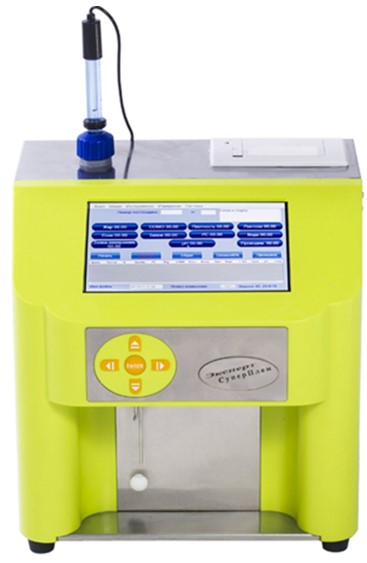A set of measures is being taken on the Don to preserve and improve soil fertility

In the Rostov region, work is underway to create a system of agro-ecological zoning and transition to an adaptive-landscape system of farming.
The Minister of Agriculture and Food Konstantin Rachalovsky spoke about this at a meeting of the regional government, which was chaired by First Deputy Governor Igor Guskov.
“Preservation and improvement of soil fertility of agricultural land contributes to the growth of productivity, increases the value of land, and is of great environmental importance,” the head of the Don agro-industrial complex emphasized. - In recent years, the Rostov region not only fully fulfills the conditions for creating food security in the region, but also makes a significant contribution to its provision on a national scale. In the current global situation, food production is a strategic vector.”
Konstantin Rachalovsky noted that in recent years, the Rostov region not only fully meets the conditions for creating food security in the region, but also makes a significant contribution to its provision on a national scale.
“An important factor in obtaining high yields of agricultural crops in changing natural and climatic conditions is the observance of the technology of their cultivation, the observance of sowing dates, methods of tillage and other methods,” the Don Agrarian Minister stated. – In order to improve soil fertility and increase the economic efficiency of agricultural production, an integrated approach is needed that provides for an increase in the share of phosphorus-containing fertilizers used, the development of land reclamation, including through hydro- and agroforestry measures, and the creation of an agro-ecological zoning system based on an adaptive landscape approach and the development of farming systems ".
According to the Don Ministry of Agriculture and Food, since the beginning of this year, Don agrarians have already introduced 552,000 tons of physical weight into the soil.
In addition, in order to increase the fertility of arable land and, accordingly, increase the content of mobile phosphorus in them, last year, funds in the amount of 100 million rubles were provided from the regional budget to the agrarians of the region to compensate for part of the costs of purchasing and applying phosphorus-containing fertilizers for fallow and fallow. 79 households were subsidized. In 2022 and 2023, 450 million rubles are provided for these purposes. During this period, "major repairs" of fields on an area of
at least 200,000 hectares will be additionally provided.
“Reclamation measures play an important role in maintaining soil fertility, especially against the backdrop of ongoing climate changes - an increase in temperature, a decrease in precipitation,” the minister noted. - One of the solutions to the problem is reclamation protective forest plantations, which occupy more than 240 thousand hectares, including shelterbelts - 125 thousand hectares. According to the conducted studies, in the coming years, it is required to create new shelter belts on an area of 116,000 hectares. I note that it is planned to provide state support for the creation of forest plantations in the amount of 50% of the costs incurred.”
It was also noted that active work on the restoration of the agroforestry system had begun in 2020. Last year, work was carried out in three pilot districts - Oktyabrsky, Kagalnitsky, Peschanokopsky - on an area of almost 10,000 hectares. This year, work will be completed in another 15 municipalities on an area of more than 75 thousand hectares, in the whole region it is planned to carry out this work until 2024 inclusive. In areas with forest belts that have already passed registration, by the end of this year, reclamation projects will be developed to care for protective plantings, and work will be carried out starting in 2023.
According to the head of the regional Ministry of Agriculture and Food, measures aimed at improving soil fertility should be based on the principles of landscape planning and the ecological and economic organization of the territory of agricultural land. This determines the goals of introducing a system of agro-ecological zoning, including: protecting soil from wind and water erosion and preventing other processes that worsen the quality of land; allocation of highly productive agricultural lands; organization of risk-oriented municipal land control; preservation of existing and creation of new systems of field-protective and anti-erosion forest plantations; ensuring science-based management of agricultural production.
In 2021, eight pilot systems for agro-ecological zoning of the territories of rural settlements were developed based on the adaptive landscape approach. This year, 20 more pilot projects will be developed in rural settlements of 6 natural economic zones of the Rostov region, which will make it possible to form an objective methodology for their creation. This work is scheduled to be completed in 2024.
At the end of his speech, Konstantin Rachalovsky drew attention to the importance of state support, noting that 2.5 billion rubles are allocated from the federal and regional budgets for the development of crop production and land reclamation this year.
First Deputy Don Governor Igor Guskov noted that priority should be given to the east of the Rostov region, which is most prone to land degradation processes. Olga Nazarenko, Director of the Rostovsky State Agrochemical Service Center, Doctor of Biology, supplemented the Minister's speech and spoke about the assessment of the effectiveness of measures to improve soil fertility.




























































